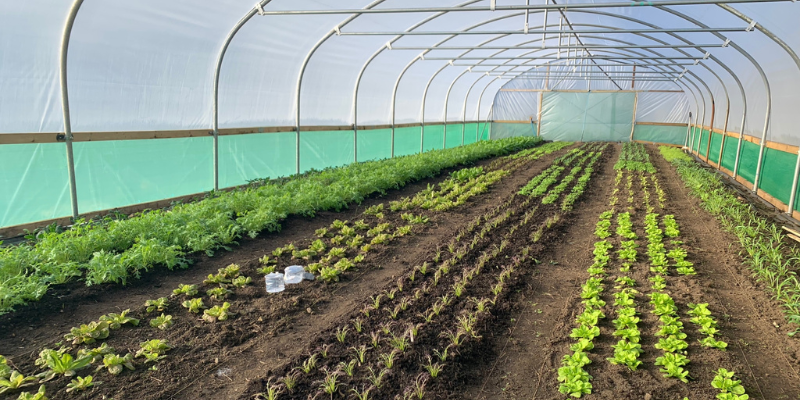Research project
Scaling up place-based food initiatives
- Start date: 1 October 2023
- End date: 31 July 2024
- Value: £50,000
- Partners and collaborators: Food Foundation
- Primary investigator: Dr Effie Papargyropoulou
- Co-investigators: Dr. Rachel Oldroyd, Prof Michelle Morris

Food insecurity (i.e. not having access to enough, nutritious, affordable, culturally appropriate food, or not knowing where your next meal will come from) affects 1 in 5 households in the UK. Food insecurity has increased following the COVID-19 pandemic and has been exacerbated by the cost-of-living crisis. Moreover, global food production accounts for at least 30% of Green House Gas (GHG) emissions contributing to climate change.
Place-based, community-led food initiatives can increase food security and sustainability of the food system. They include food hubs, food banks, pantries, community cafes, community supported food growing schemes, social supermarkets etc, and they offer a range of activities such as food aid or surplus food redistribution, food skills training (e.g. food growing & cooking classes), community engagement and support (e.g. shared meals, signposting to other services). They support those affected by food insecurity, offer a local and more sustainable food supply chain, and deliver wider social, economic and environmental benefits.
This project will help us better understand how to scale up (i.e. increase the size) or out (i.e. replicate in more places) place-based, community-led food initiatives to increase their positive impact to communities, environment, and local economies across the UK.
This work builds on a previous project with Foodwise Leeds Food hubs for food security, health, incluisve growth and sustainability
Impact
This project aims to advance our understanding on how to scale up (i.e. increase the size) or out (i.e. replicate in more places) place-based, community-led food initiatives (e.g. food hubs, food banks, pantries, community cafes, community supported food growing schemes, social supermarkets) to increase their positive impact to communities, environment and local economies.
It will do this by:
- developing best practice case studies across the UK
- investigating how to scale these out or up
- communicating these to national level policy makers.
The case studies will highlight the positive impacts the place-based, community centred food initiatives have on food security, health, sustainability, resilience, and local economies. They will advance our understanding on what works, in which context and why, and focus on the replicable elements that can help us understand how these lessons are relevant in other contexts and how we can scale out or up the positive impacts.
Publications and outputs
Please click on the link to read our latest report, ‘Place based Food initiatives from the UK’, designed by Research Retold.
Video
Podcasts
<iframe style="border-radius:12px" src="https://open.spotify.com/embed/episode/57CbwS91eUqJ0y0xO06PJX?utm_source=generator" width="100%" height="352" frameBorder="0" allowfullscreen="" allow="autoplay; clipboard-write; encrypted-media; fullscreen; picture-in-picture" loading="lazy"></iframe>
Webinars
- 'An Evaluation Toolkit for Assessing the Impact of Food Hubs' - During this webinar, Dr Gemma Bridge provides an overview of the Food Hub evaluation toolkit which was developed during a 2- year research project in collaboration with Leeds City Council, FoodWise, and Food Hubs across Leeds.
- 'Food Hubs: what are they and what role do they play in fighting food poverty?' - During this webinar, Dr Effie Papargyropoulou highlights the environmental, social, and economic benefits Food Hubs bring to the communities they serve and the broader food system, and makes the case for policy support and funding.
- 'Scaling out community food organisations' - During this webinar, the project team discuss the project aims, the methods employed to scope priority areas using The Priority Places for Food Index (PPFI), and capture variations in community-led food initiatives.

